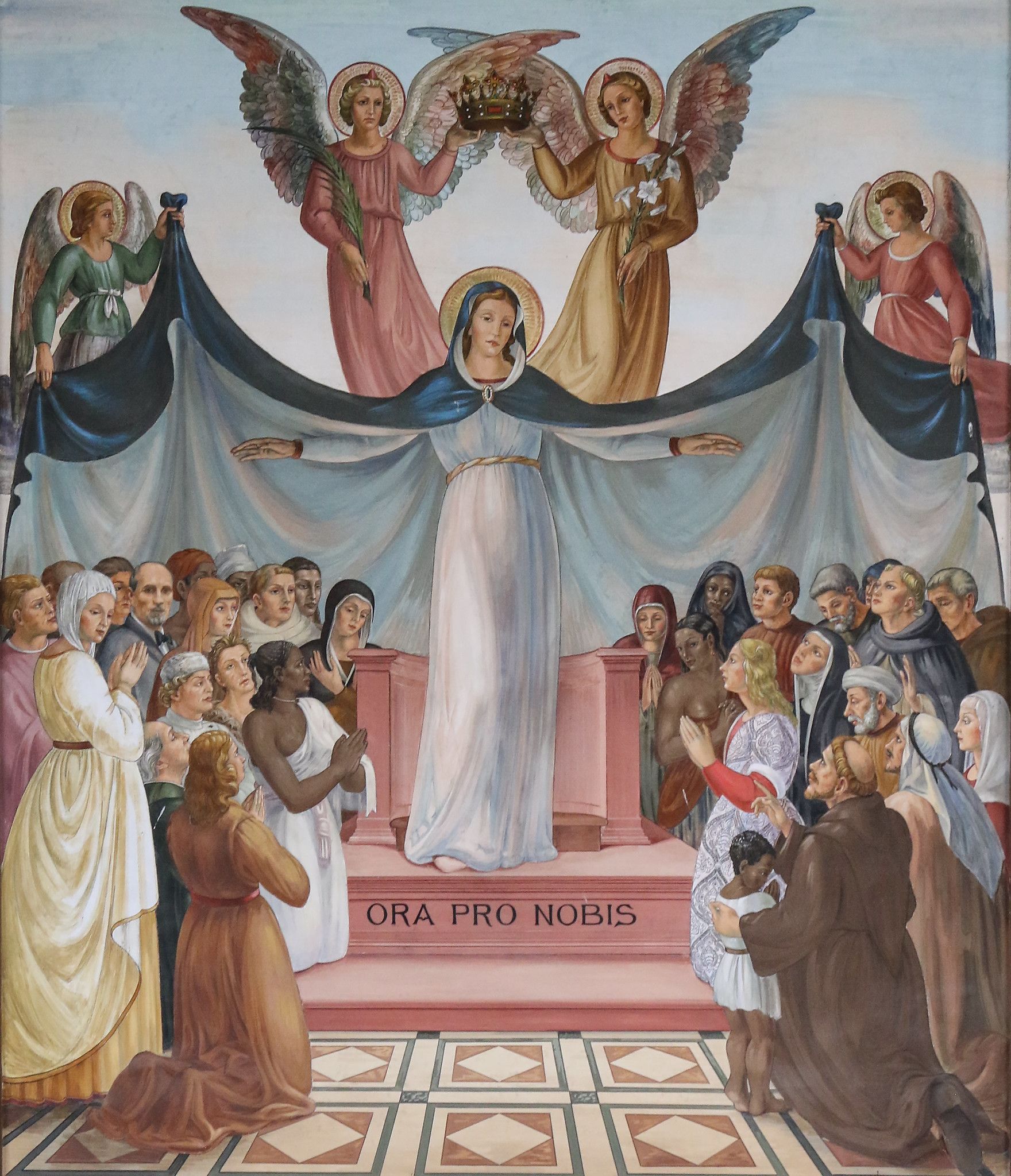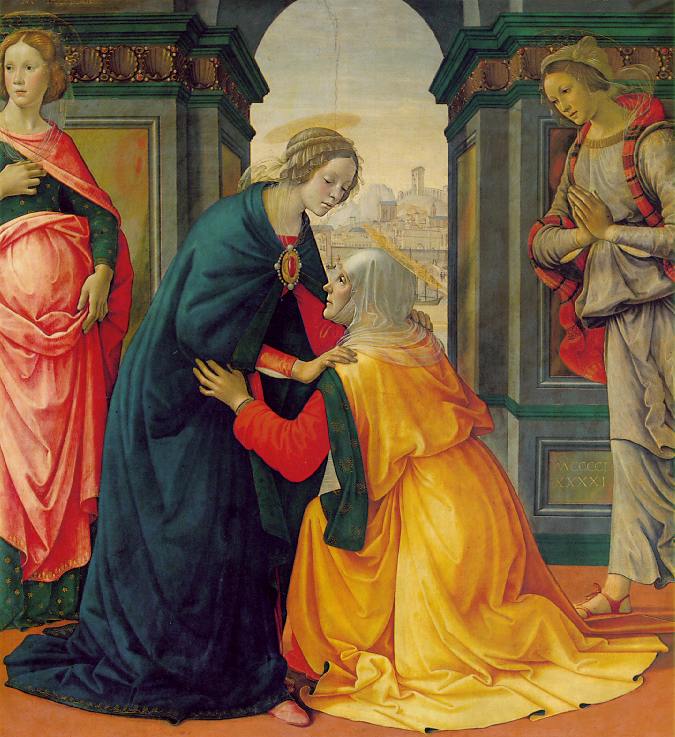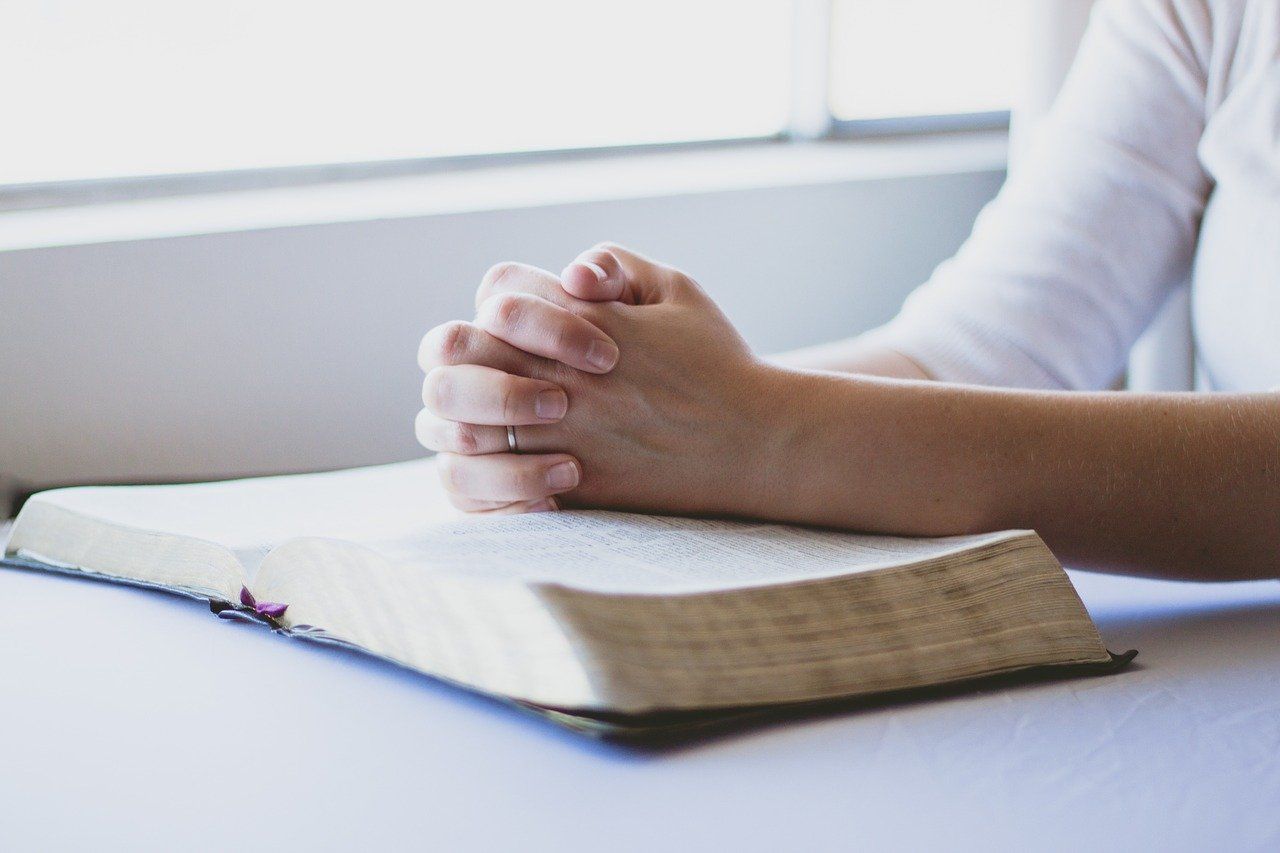Too tired to pray? Beware of the Noonday Devil
Why we must conquer the two-faced demon

Advance warning: This post covers a serious topic: spiritual warfare. Forgive me if it's hard-hitting but St. Paul says we mustn't be ignorant of the devil's schemes. I wrote this in the hope it will help my brothers and sisters in Christ. Do not be afraid, because God is on our side and will give us the strength to overcome all evil attacks.
Jesus has promised wonderful rewards to those who love him, trust him, and follow him. Our inheritance is indescribably abundant and unimaginably good, and it's stored up in Heaven for us. We have everything to live for, and we are promised eternal life, a glorious sharing in the divine life of the Holy Trinity. As the Message version of the Bible states: "God is keeping careful watch over us and the future. The day is coming when you'll have it all- life healed and whole".
Yet first we have a demanding spiritual journey to make, and the Bible leaves us in no doubt that we will be tried, tested and even opposed by spiritual enemies as long as we are on the earth. Therefore, we must stay awake and remain vigilant. As Eugene Peterson writes, in the Message paraphrase of the Bible:
"The way to Life, to God, is vigorous and requires total attention" (Matthew 7:14)
"You're sons of the Light, daughters of Day. We live under wide open skies and know where we stand. So let's not sleepwalk through life like others. Let's keep our eyes wide open and be smart". (1 Thessalonians 5: 5-6, the Message).
In this post I will explore one type of subtle spiritual attack that can afflict us, and how to deal with it according to the wisdom of the Bible and church teaching.
The destructive power of acedia
Acedia is an evil power and a dangerous temptation to sincere Christians and all people of goodwill. It is known as the noonday devil because it can rob of us our daily productivity, including our spiritual growth and fruitfulness, if we fail to recognise its subtle action. Acedia can affect all areas of life, including our marriages and our vocations, and it affects all of humankind, not just religious people.
I'd never even heard of acedia until a few years ago, because it rarely gets any publicity. But it is mentioned in Psalm 91 and identified as “the destruction which lays waste at midday”. You may ask, what does it destroy? It is a demonic power aimed at destroying our spiritual lives and our hope in God. Acedia afflicts many people but particularly those who are committed to a life of prayer.
“Are you serious?” you may be asking. “Is there really such a thing as the noonday devil?”
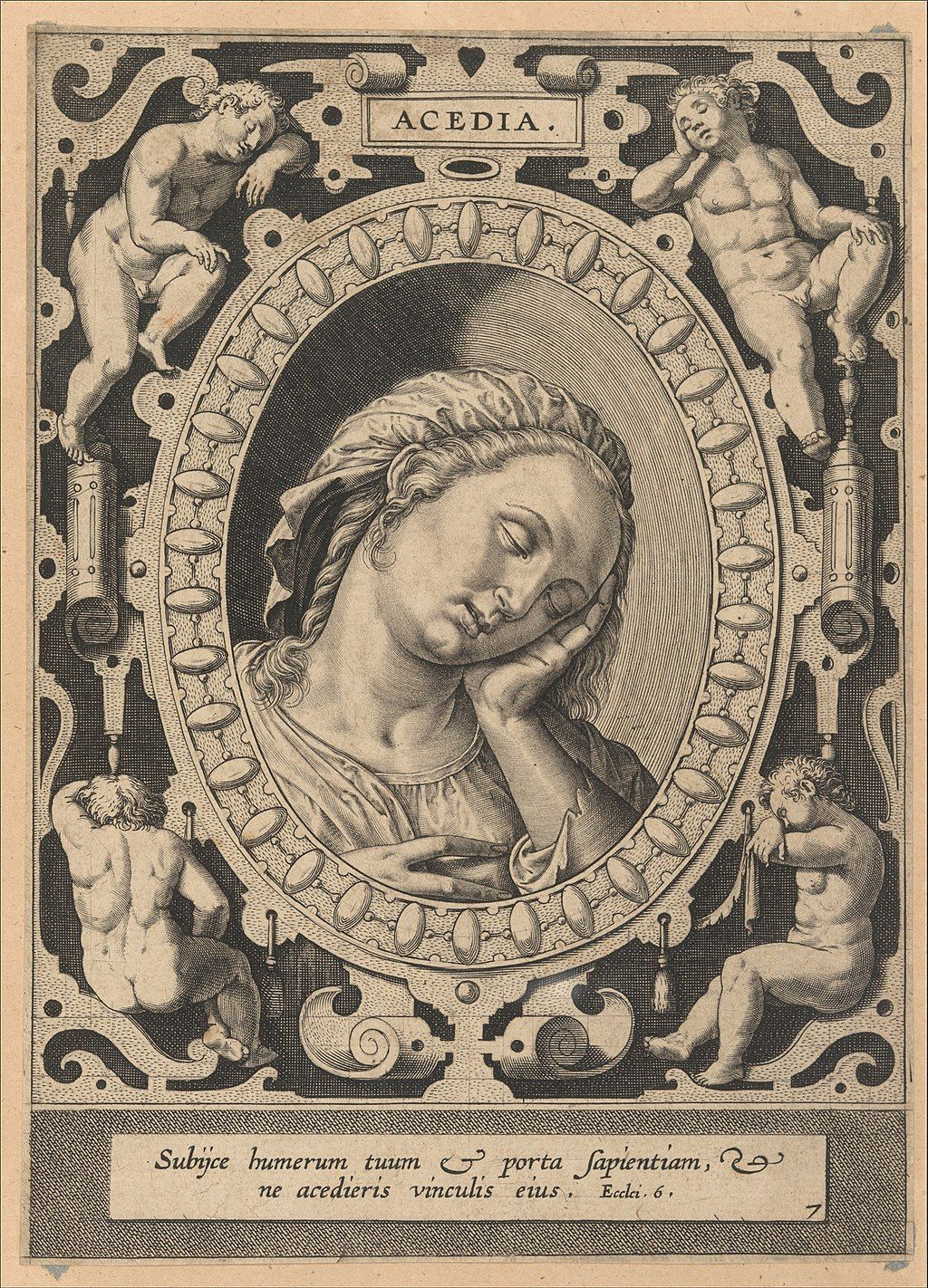
Acedia is real, and quite a common affliction. But it is so complex that it goes unrecognised, hiding in plain sight. So, many people are affected without knowing it. Acedia is described in early Christian literature as “the most oppressive of all demons”. It produces a complicated set of symptoms, a spiritual paralysis with far-reaching effects. It has the ability, if left unchecked, to bring people to total despair. Ancient Christians called it "the complex thought".
Acedia has two faces, that is to say, two modes of operation, which are the inactive or active manifestations. Both are aimed at keeping us from our prayers and ultimately, taking us out. Do not be dismayed! Once we learn to recognise the subtle symptoms of acedia, we can defend ourselves against it.
The first thing to do is to ask God for his help every day, because this thing is bigger than we are, However, with God on our side, and the determination to push through, we can be assured of victory!
1. The slothful face of acedia: a temptation to be spiritually or physically inactive
Under the influence of the power of acedia, we procrastinate with prayer and work. We may feel tired, physically or mentally slothful, hopeless, anxious, overwhelmed or sad. Perhaps we spend time ruminating over many issues. We can become morose and faint-hearted, unable to focus. We may be easily distracted by many things, and the spiritual life seems too hard.
Perhaps we have doubts about God, wonder if he’s really interested in us, or fear that he is disappointed with us. We despair that we are ever going to make progress. Prayer and the things of God can feel downright repulsive. In addition, acedia can also give you a vague feeling of being unwell and encourage obsessions over health.
All of this is to stop us from praying right now, in the present moment, which is the only moment we have. God only meets us in the present, not in the past or the future. So, it’s important to be aware when we keep giving in to procrastination, that we are missing out on precious moments with God that we can’t recover.
2. The second face of acedia: temptation to restless activity
The second manifestation takes the form of an inner instability or restlessness. We don’t stick at things, we don’t want to sit still on our own and pray, and so we find other things to do and places to go. We always want a change of scenery or a change of activity. We may seek shallow social interactions or spend time on social media; anything to avoid the hard work of praying or fulfilling commitments when we don’t feel like it. Sometimes this activity takes the form of good works, but with a drivenness that doesn’t come from God. Despite all of our apparent good efforts, we leave many things unfinished and we are not spending time in prayer.
This activism prevents us from having a healthy rhythm of life and walking in the Spirit. It leads to burnout and resentment because eventually we can’t keep it up the frenetic pace.
Acedia was well known as a temptation for monks who were supposed to stay in their cells to pray. These holy men would be tempted to run away from their cells and abandon their high calling. But acedia also affects people today and makes them unhappy with their commitments, whether they are priests or married people. Some people want to run away from their marriage without any good reason and this is another twist of the complex syndrome which is the noonday devil. It is the temptation to give up on our God-given vocation.
We can be afflicted with both the active and the inactive forms of acedia (sometimes both on the same day). Whatever form it takes, this oppression is like a dark cloud blotting out the rays of the sun and clouding our judgement. Under its influence, we can only see the negatives in our situation.
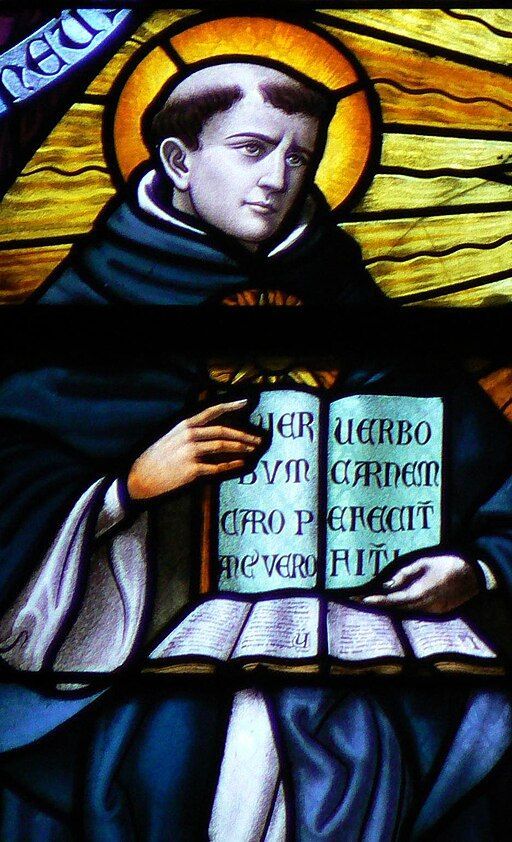
Sadness over what is good
Delving deeper, the famous Christian theologian and philosopher, St. Thomas Aquinas, defined acedia as “sadness over spiritual good”. He saw it as an unwillingness to undertake the demanding (and sometimes painful) process of becoming holy. That is why yielding to acedia is a sin and can eventually destroy our faith, hope and love. The tragedy is that we lose sight of who God is (a loving Father), who we are (his beloved children and heirs of every spiritual blessing in Christ) and our destination (a glorious future in Heaven). We conclude that the path to holiness is just too difficult and fall into a silent despair. We have fallen prey to Satanic deceit.
Acedia is a very dangerous power. It attacks us in subtle ways, and if we yield to it unknowingly, it can easily become a vice.. It was originally included in the official list of deadly sins because the early church was well aware of its power to destroy our spiritual lives.
How to be victorious over acedia
The good news is that there is a clear-cut way to fight acedia. If you persevere with the following steps, you will eventually conquer this deceitful foe.
The first step is recognizing that we have fallen prey to the noonday devil. Once we recognize the symptoms, it’s much easier to resist. Knowing your enemy is half the battle.
The next step is to ask your Heavenly Father for strength in the battle. Go boldly to the throne of our gracious God, Jesus has already given you this privilege. Hebrews 4:16 says: “Let us with confidence draw near to the throne of grace, so that we may receive mercy and find grace to help in time of need”. Acedia can’t be overcome by self-effort alone, but God will give you the victory if you put your confidence in him.
Make a firm decision to faithfully follow your high calling as a son or daughter of the Living God. Following Jesus requires self-sacrifice but you will gain eternal happiness.
Find the time of day that suits you best according to your lifestyle and decide how much time you can give to prayer on a daily basis. If you can’t manage a half-hour of prayer every day, just do 15 minutes, but make it a daily habit. Do not cut short your prayers because you are feeling tired or bored.
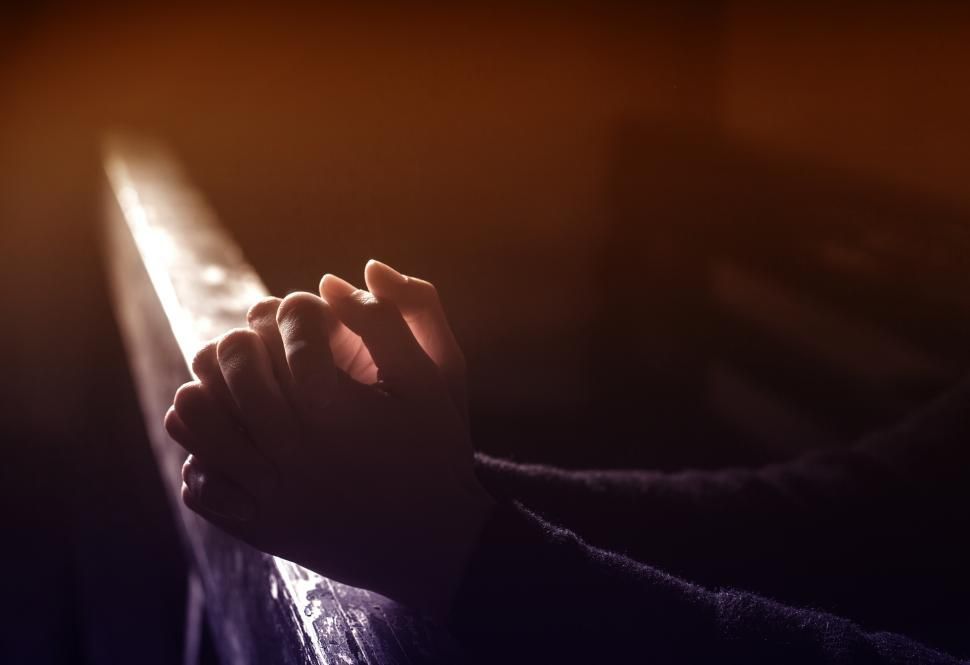
Be aware that you may have all sorts of distracting thoughts in your mind but this is normal, so do not give up. You may not feel the effects of daily prayer immediately, but it will have a cumulative, positive effect and you will grow spiritually. Even if you do not feel the tangible presence of God, he is always there, and he will honour your efforts.
The desert fathers recommend asking God for the gift of tears. Tears inspired by the Holy Spirit help to melt the hardness in our hearts.
Encourage yourself by reading scriptures about God’s love and Christ’s victory. And speak them out loud, as Jesus did when he was tempted by the devil in the wilderness.

Be kind and patient with yourself. If you miss your prayers occasionally, that’s OK- God knows that we are weak. Just start again without beating yourself up.
Focus your thoughts on the goodness of God and everything that is good and noble and admirable in life. Every day, think of three things you can be grateful for, and thank God for his blessings.
According to the ancients, it is good to meditate on the shortness of human life and remember that future glory that will be yours if you don’t give up your hope of salvation. “Our present sufferings cannot be compared with the glory that will be revealed in us” says St Paul (Romans 8:18). “He who endures to the end will be saved” (Matthew 24:18)
Receive Jesus in the Eucharist as often as you can and make use of the sacrament of confession on a regular basis. Both of these practices have supernatural power to strengthen and transform us.
Victory over acedia doesn't happen overnight, but God will deliver you in due course. He might be developing your spiritual muscle in the meantime!
All of this is not to say that you should neglect any physical or psychological conditions that might be making it hard to pray. I would always recommend seeing a doctor in these situations. It is not a sin to be clinically depressed, for example, and reach out for professional help.
Finally, be encouraged :Victory over acedia is sweet. The desert father Evagrius of Pontus taught that once we have defeated the noonday demon, a state of “peace and ineffable joy” will dominate the soul. A new sense of energy, a passionate faith, and a sense of deep inner stability awaits those who don't give up.
Recommended reading
To explore this topic in depth, read The Noonday Devil: Acedia The Unnamed Evil of Our Times by Jean-Charles Nault.





